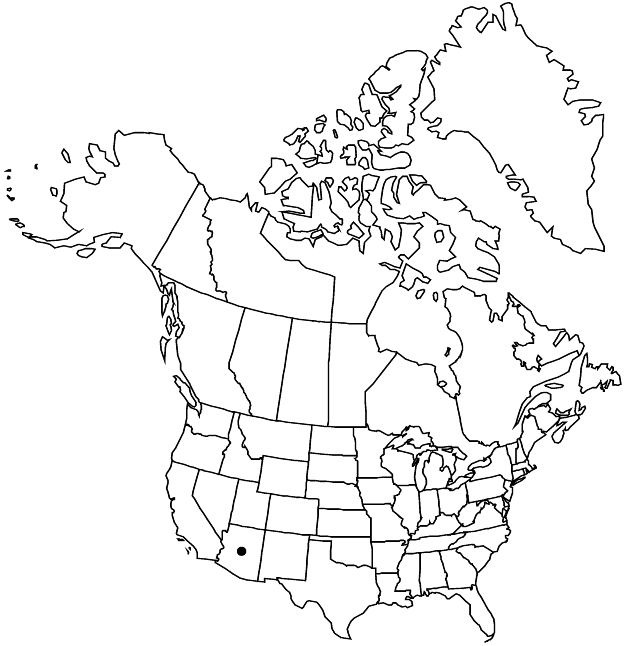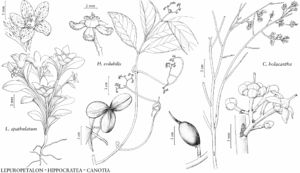Canotia holacantha
Rep. Colorado R. 4: 15. 1861.
Common names: Crucifixion thorn
Selected by author to be illustrated
Treatment appears in FNA Volume 12. Treatment on page 119.
Revision as of 18:18, 24 September 2019 by FNA>Volume Importer
Shrubs or trees 2–5(–10) m. Stems many-branched, virgate, principal branches ascending, pale green. Flowers: sepals 2–4 mm; petals oblong, 4–5 × 2 mm; stamens 5, filaments as long as petals; styles united into beak. Capsules narrowly obovoid, 21–27 × 6–10 mm (including beak), opening from apex to middle. Seeds basally compressed. 2n = 30.
Phenology: Flowering spring to fall; fruiting late summer–winter, fruit persisting into spring.
Habitat: Open roadsides, deserts.
Elevation: 0–2000 m.
Distribution

Ariz., Mexico (Sonora).
Discussion
Canotia holacantha has been reported from Utah (J. R. Hastings et al. 1972; M. C. Johnston 1975), but was not included in A Utah Flora (S. L. Welsh et al. 1993, 2003); no corroborating specimens have been located.
Selected References
None.
Lower Taxa
None.
